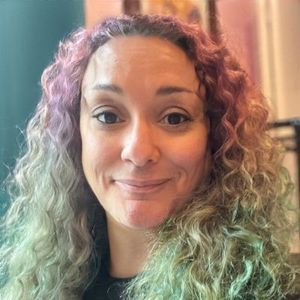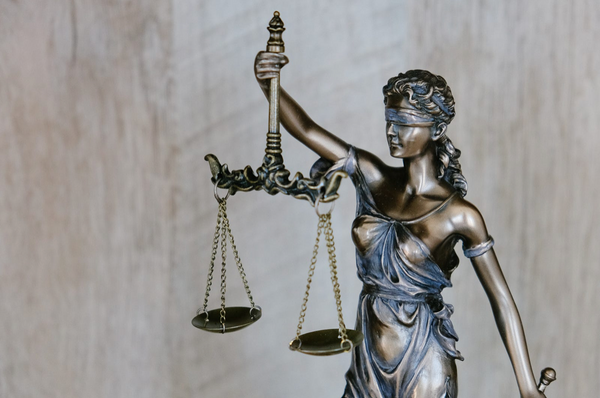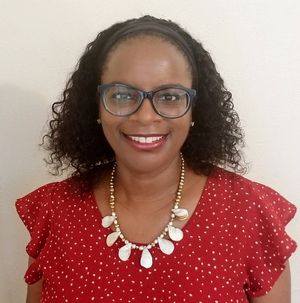I don’t know how to write this essay.
I don’t want to write this essay.
Most of all, I don’t want to believe that the scale and breadth of Black writing on this exact topic can exist and be so completely ignored that I would feel like there should be yet another pointless plea for Black existence in an endless stream of unread pleas for Black existence.
I have been part of this endless stream. For decades I’ve written about Blackness and racism, about how Black folk exist to provide free emotional labor1, how we exist in white spaces as an errant mark.2 In white spaces, Black folk are an intrigue, a confusion, a misplacement. Where we exist, we are seen as existing rather than being allowed the anonymity of normalcy. “We are an errant brush stroke on the canvas of an otherwise perfect painting, notable not for what we are, but for where we do not belong.”3 I have written and published scores of essays that are, in a sense, about diversity.
But I don’t know how to write this essay. I don’t want to feel I have to write this essay. Because it means that such a simple yet vital concept is still, despite so much literature on the subject, so misunderstood that it makes me wonder . . . what is the point of trying?

What is diversity?
This is a question that I have seen answered in two different ways, depending on who is asked.
The answer I would agree with, the answer that I would hope that everyone understands, is diversity is a representative makeup in a group or organization that reflects the broad reality of demographics in the wider society. I would hope everyone sees “diversity” as a metric that can inform us as we address the real structural discontinuities that marginalized communities have in reaching positions held by those of privilege and/or power.
The answer I see instead far too often is: headcount.
What diversity should be is a visible marker of the removal of systemic barriers that marginalized communities have to contend with and structural support for those communities within an organization. Far too often, however, diversity is just a numbers game. Get more X people and everything will be fine. They miss the fundamental reality that diversity without substantive organization and structural change is another term for “marginalization.”
Organizations focus on the metric instead of the changes. The metric is easier, because the reality of diversity is so much more complicated than “get X people to show up.” It can stem from long-term structural inequality, and it can also stem from cultural shifts even though that inequality has (supposedly) been removed (see: Black folk and swimming, birdwatching, hiking). But it can also stem from the real lack of safety, comfort, and support that, for instance, Black people have in white spaces. If a Napa Valley wine tour is made for white people who only act like a certain subset of white people, we know we might get kicked out for acting too black.4 Sometimes, we just don’t want to deal with having to watch our backs in white spaces, so we choose not to go to them. Until the space itself changes, that will continue to be the case.
Making a white space, for white people, and then simply telling Black people to show up for diversity is a way to marginalize Black people. Angela Davis said it best: “Are you simply going to ask those who have been marginalized or subjugated to come inside of the institution and participate in the same process that led precisely to their marginalization? Diversity and inclusion without substantive change, without radical change, accomplishes nothing.”5
The problem with diversity as a headcount is that it allows people in power to focus on the metric, and ignore the harder work of making substantive changes to the organization and to society so that diversity as a metric is actually meaningful. It also tells marginalized people that their importance is their difference.
Recently, I had two people in the Transgender community (whom I considered friends) do this by asking me to join their organization specifically to help improve their diversity:
…We don’t typically cold-DM people and invite them. [Name] has been getting a bit bothered by how white our [organization] is and suggested we reach out to see if we can improve diversity. I don’t want you to think we’re just inviting you to be our token black person. We’re not. We all legitimately think you’re an amazing woman and I, personally, always love your perspective on the world…
I’m not going to lie, this absolutely crushed me.
I have been tokenized my entire life. My own mother’s (white) family often tokenized me as a child, my friends in high school tokenized me, my colleagues in the military tokenized me. Existing in a Trans community, I wanted to believe that people I trusted in such a highly marginalized group would understand how it would feel to be invited because they want more Black people.
But they did not, and it destroyed me. I spent the next few days offline, randomly breaking down in tears, unable to shake the feeling that yet again in this white space I am just a concept, an abstraction. I am not Terra, silly woman, funny anthropologist, comical and occasionally serious writer. No, I am “Blackness” as a concept, I’m the abstraction of diversity. Most of all, I’m useful to them and invited because I’m Black.
This particular space is known to be very white and oft criticized for having a race problem, but I genuinely expected people from the marginalized LGBTQ+ community, and particularly fellow Transgender people, to know how this would read. I expected people would not actually try to use me, but every time I get comfortable in this expectation, I’m smacked again with the reality of what it means to be Black in white spaces.
For those who can’t understand why this would be so hard, let me explain by rewriting this in the way I, as a Black woman in a white space, hear it:
We normally wouldn’t invite you, but we have a problem with perception because there are not enough of your people to hit a headcount and make ourselves feel better. Rather than work to make an inviting space for your people where you’d naturally congregate, we thought it’d be easier to just tell people like you to come over, without really considering the social or personal cost to you. We don’t want to be accused of tokenizing you though, so we’ll say we are not and talk about how great you are with the understanding that if we thought you might be the kind of your people we disagree with we totally would not invite you.
Now, for all you white people who are up in your feelings and hating me right now, let me just say that, yes, I know they did not say that, and yes, I know they were trying to be thoughtful. But I hope you also understand that anyone who has bothered to read anything from [*gestures vaguely at library shelves labeled “racism” and “intersectional feminism”] will read that and go “Mmm hmmm, that is pretty much exactly what they said.” Because the original message reads like it came from a scene in an Audre Lorde book.
If you are inviting someone from a marginalized community to show up to your organization specifically because they are from that community, specifically to help you hit diversity metrics, without doing the substantive structural change of changing that organization so that the marginalized community will be safe, comfortable, and supported, then you are doing exactly what Angela Davis said. Furthermore, the suggestion of not using them as a token is the language of power because it is writing the rules to suit their needs, defining the language in the way that favors them. Tokenizing Black people is not just done by people using the words “we are tokenizing,” it’s done by people who act in a manner that uses us as tokens. Inviting a person to an organization so that you can then say “Our diversity is better because this person is here” is literally using them a token.
In a power dynamic, it also serves to remind us of our place. As I have written before:6
The malicious comment is intended to inform you that you are not welcome, but the innocent, even the inviting, comment has no less power to isolate you. What right does anyone have to welcome you into a space where no white person would be required a welcome? What purpose is there in calling out your specific presence if not to gently remind you that you are, in fact, a guest in that space, one whose invitation may at any moment be revoked?

I am not your diversity.
I do not exist as a way for you to hit an arbitrary metric. Moreover, the fact that you would consider asking me to be part of a headcount without a very real understanding of what that means in the context of generations of Black people having their head counted to solve some problem white people have — and solve it for free — suggests to me that even if I did act as your diversity there would be no real safety, comfort, or support for me in the endeavor.

Angela Davis said, “Diversity and inclusion without substantive change, without radical change, accomplishes nothing.”7 But that’s not quite true, is it? It accomplishes one very specific thing. It is a way of telling me that I am useful to you without necessarily any benefit to me. It is a way of reminding me that I am an errant brush stroke on the canvas of an otherwise perfect painting, notable not for who I am, but for where I do not belong.
1 Terra Kestrel, “When You Walk into That Valley,” OHF Weekly, August 24, 2023, https://www.ohfweekly.org/when-you-walk/
2 Terra Kestrel, “Such a Thing as Grace,” OHF Weekly, April 28, 2022, https://www.ohfweekly.org/such-a-thing-as-grace/
3 Ibid
4 Veronica Rocha, Lee Romney, “Black women kicked off Napa Wine Train to sue for discrimination,” Los Angeles Times, October 1, 2015, https://www.latimes.com/local/lanow/la-me-ln-napa-wine-train-black-women-lawsuit-20151001-story.html
5 Ava DuVernay, “Ava DuVernay Interviews Angela Davis on This Moment—And What Came Before,” Vanity Fair, August 26, 2020, https://www.vanityfair.com/culture/2020/08/angela-davis-and-ava-duvernay-in-conversation
6 Terra Kestrel, “Such a Thing as Grace,” OHF Weekly, April 28, 2022, https://www.ohfweekly.org/such-a-thing-as-grace/
7 Ava DuVernay, “Ava DuVernay Interviews Angela Davis on This Moment–And What Came Before,” Vanity Fair, August 26, 2020, https://www.vanityfair.com/culture/2020/08/angela-davis-and-ava-duvernay-in-conversation













